Gay footballer Thomas Beattie deftly explains why the World Cup should never, ever be held in Qatar
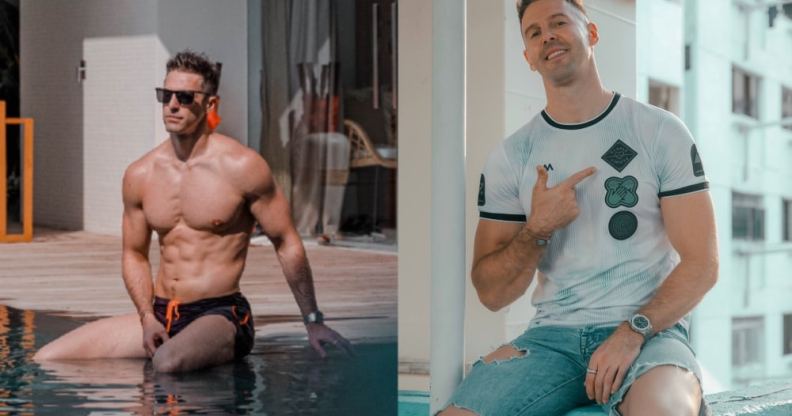
Thomas Beattie. (Provided)
When Thomas Beattie came out a gay in June 2020, the world was still in the harshest period of COVID-19 restrictions.
Like most people, Beattie found himself stuck at home, mulling over the magnitude of his decision to come out. In some respects, having that peace and quiet ended up being a good thing.
“I came out and was then kind of locked in my condo, which in a way kind of protected me,” Thomas Beattie tells PinkNews. “It was a little bit overwhelming, but post coming out it’s been brilliant – it’s been so liberating.”
Coming out was a strange experience for the now 35-year-old – he had spent so many years being afraid of who he was. Overnight, he realised that his fears were entirely unfounded.
“When I came out I realised people actually love you for it or they respect you for it or they admire you for the courage of being able to share that. It was a strange feeling for me because I instantly went from fear and anxiety and a lot of struggle to, ‘Why didn’t I do this sooner?'”
Of course, looking back, Beattie knows why he didn’t come out sooner. Simply put, he wasn’t ready – but by the time June 2020 rolled around, he was finally primed to be fully open about who he was.
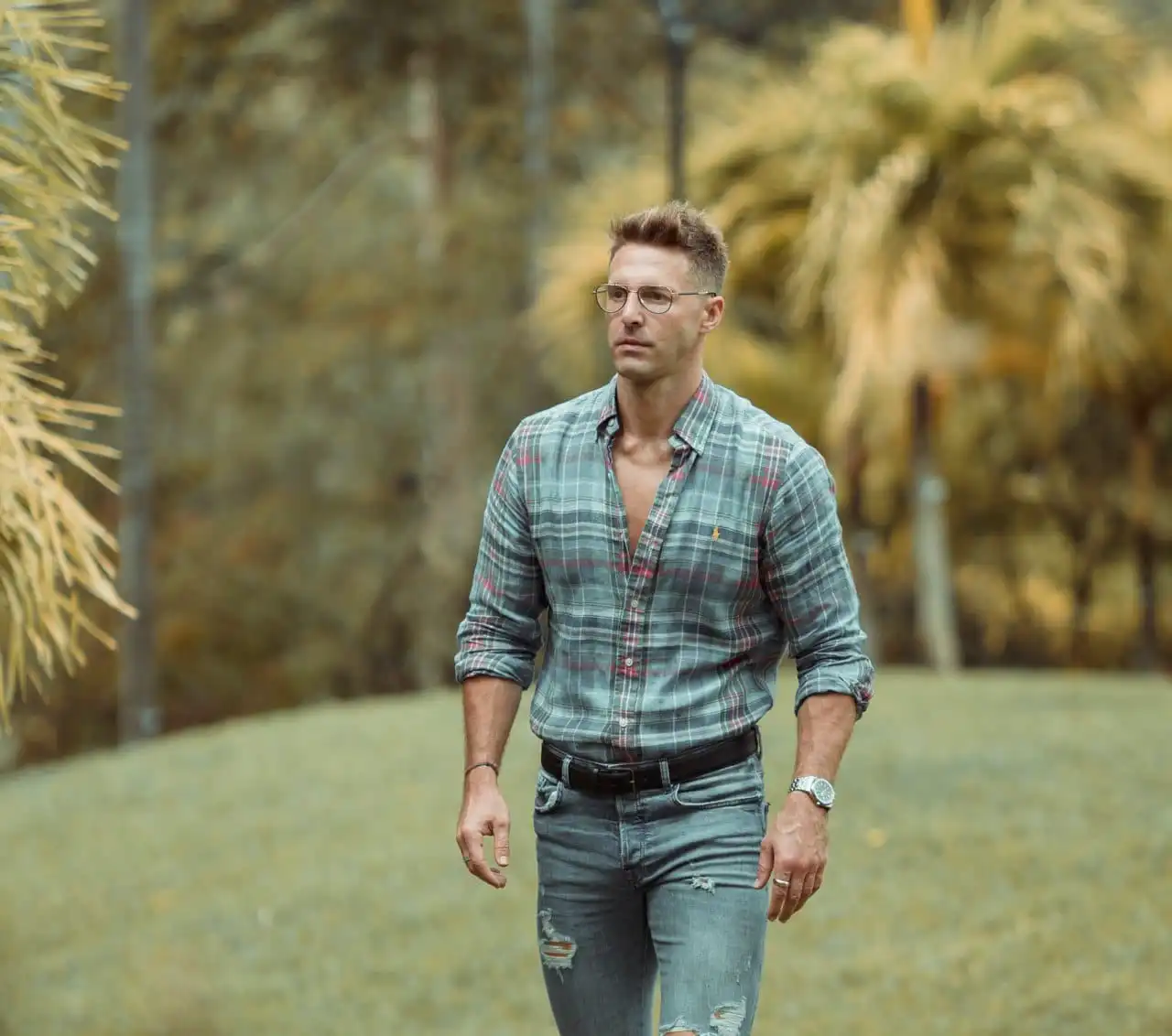
Thomas Beattie. (Provided)
“I was ready to tell that story, and since then my life has been so much more productive. It’s been more wholesome – I’ve been able to step into my whole self.”
Thomas Beattie thought being gay made him ‘less of a man’
Looking back, Beattie thinks the main reason he wasn’t able to come out for so long was down to toxic masculinity.
“I think I’ve become more cognisant of toxic masculinity and how society in general views the image of a male and a female,” Beattie says. “I always felt like it would be perceived as an attack on my ability to do my job as an athlete, and then even post-football the things I was working on and building. I had a misconception, which had been perpetuated by society, that it made me less of a man, or less able to do my job.”
Thankfully, things are changing. Gender roles are much less rigid than they once were, but for footballers like Beattie, it can be hard to escape the feeling that there’s a pressure to express yourself in a certain way.
“I think these roles for the better have been redefined in many areas but I think sport is one area where we’re still really trying to define what the expectations of a male and a female are,” he says. “I think that was one thing I struggled with. I now know that none of it makes me any less or any more, but I think that misconception was something I struggled with.”
It had been such a long time since I’d even heard stories like mine and I wanted to start that conversation.
Beattie eventually retired from football after a serious head injury ended his career. He later moved to Singapore where he started working as a businessman and as a model. Eventually, his new life gently nudged him out of the closet.
“After I finished football I started to build quite a few ventures,” he explains. “I’d been able to build quite a bit of success in that and it gave me the confidence to just be in the position to say, ‘Even if the whole world turns its back on me, I’m good – but I want to use my voice to share my story so it can resonate with other people.’ It had been such a long time since I’d even heard stories like mine and I wanted to start that conversation. I wanted to inspire other people to feel like I was a safe space to be able to reach out and say, ‘I’m struggling as well.'”
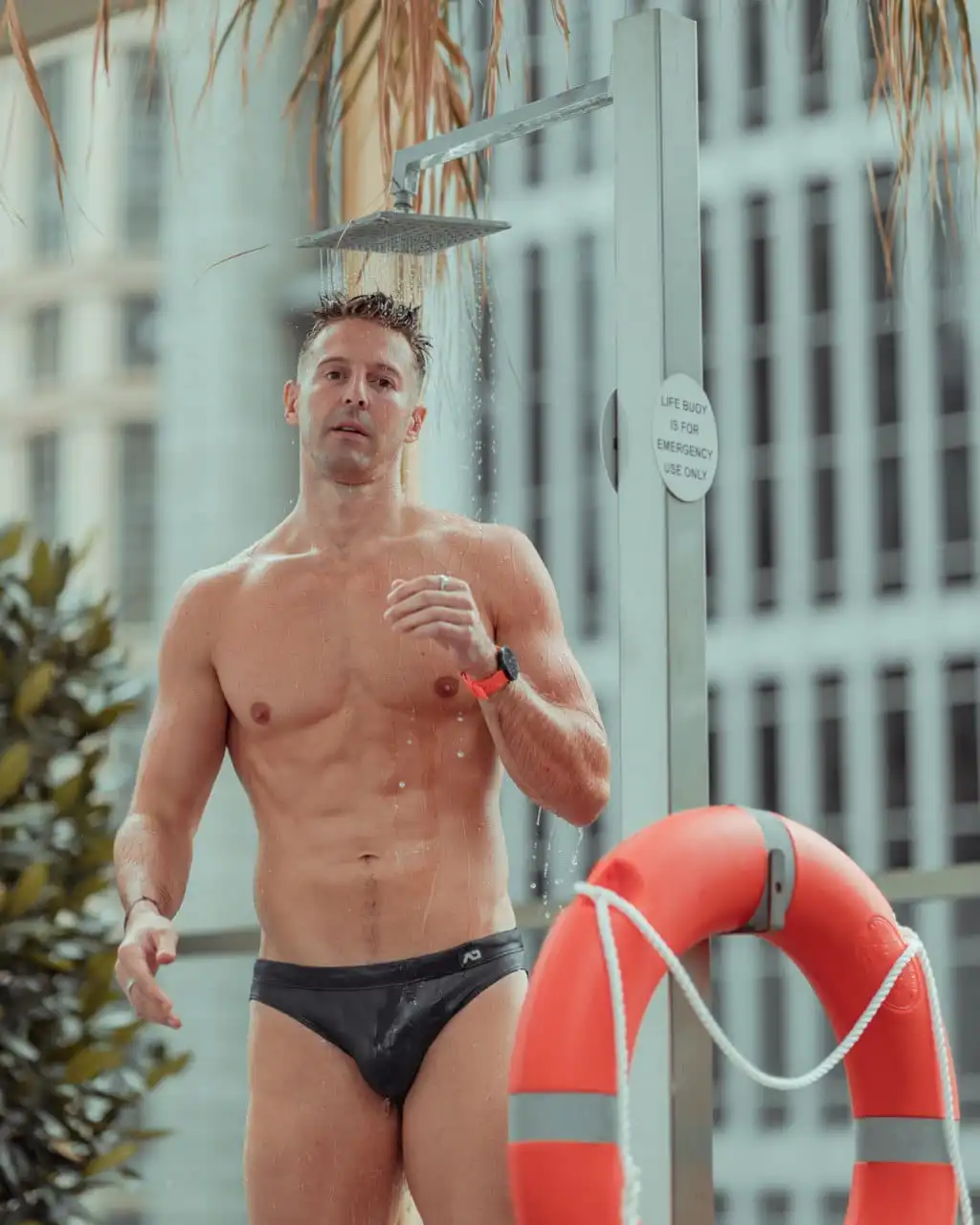
Thomas Beattie. (Provided)
Being named one of Singapore’s most eligible bachelors was the final nudge he needed to come out.
“It just brought a whole wave of attention that I didn’t need from females, and I was at a stage of life where I thought, I don’t need to appease anyone anymore.”
Internalised homophobia stopped him from coming out
Gradually, he came to realise that he was running away from who he was – and he was avoiding certain events and situations out of fear.
“I made career decisions as an athlete that took me away from the limelight,” he says. “I was chasing my dream and I had a lot of aspirations, but I was running away from myself. I had institutionalised homophobia within me, and I think that was just the society I grew up in, especially within football.”
He continues: “I was also probably a part of that problem – I knew the word ‘gay’ as a slur before I really knew what it meant. It was a word that people used around me when you didn’t like something or somebody. That word had such a negative connotation that when I even considered I might be part of that community, the stigma of what that meant, it weighed heavily on me.”
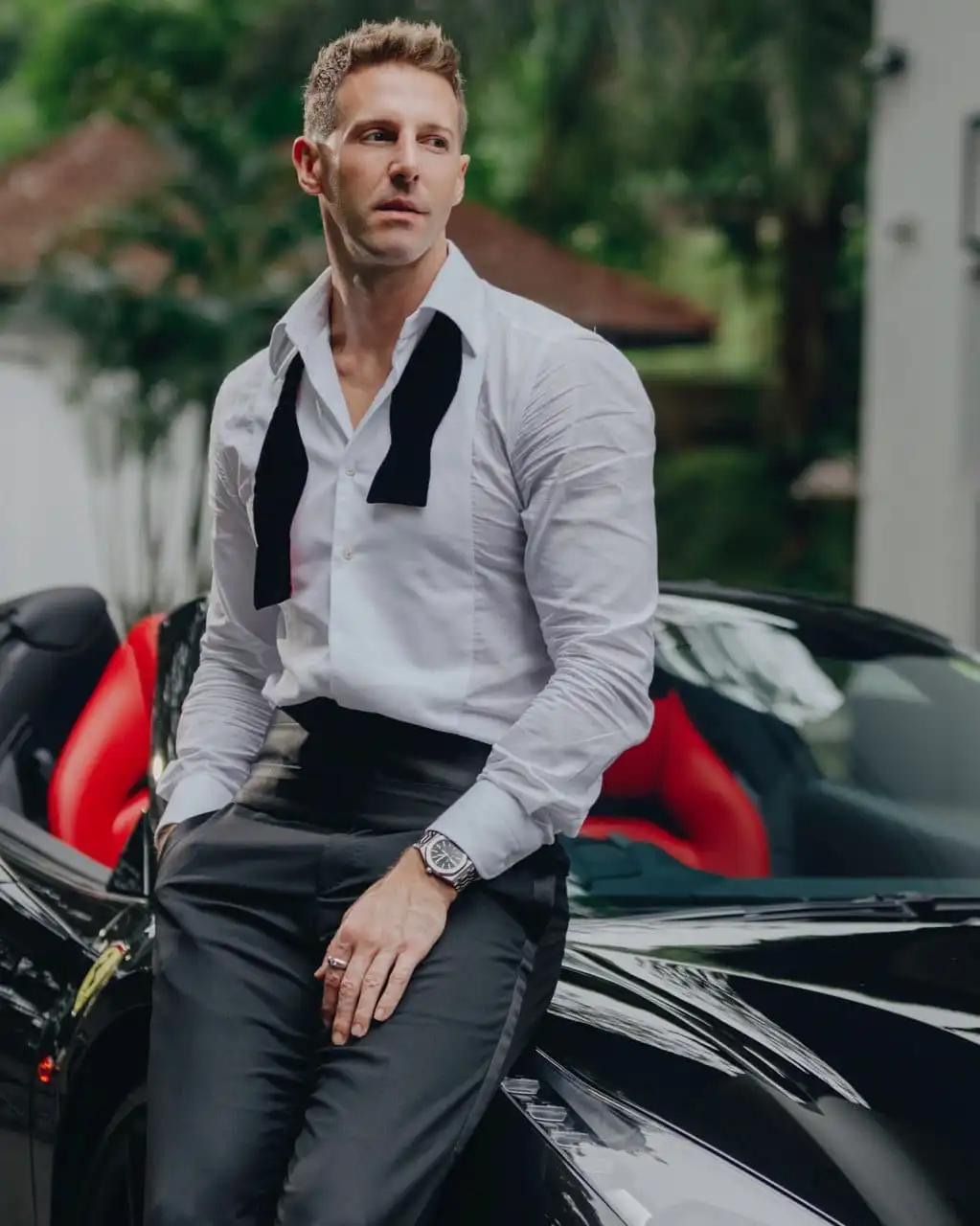
Thomas Beattie. (Provided)
Remarkably, Beattie’s decision to come out seems to have sparked change. Up until recently, openly gay footballers were almost entirely absent in UK professional football. Justin Fashanu became the UK’s first ever openly gay footballer when he came out in 1990, but his story ended in tragedy – he died by suicide eight years later.
In 2013, Robbie Rogers came out as gay shortly after he left Leeds United, and in 2020, Beattie made headlines when he opened up about his sexuality. Blackpool FC player Jake Daniels became the only active openly gay footballer when he came out in 2022.
Beattie believes things are changing, even if progress might feel a little slow.
When I came out it was really important to me that I was visible enough that I wanted people to use me as a safe space.
“It’s one of those areas that’s a little bit behind the rest of society – it does need to catch up – but certain groups are doing a good job and especially a lot of the clubs in the Premier League now, I’m really impressed. A lot of them are starting to look at equality, diversity and inclusion as a strong part of their business. It is changing, but slowly,” he says.
“I think it’s moving slowly but now we’re seeing a bit of a wave. When I came out it was really important to me that I was visible enough that I wanted people to use me as a safe space.”
He supported Josh Cavallo in his coming out in a ‘full circle’ moment
Since then, he’s been able to support Australian footballer Josh Cavallo in his coming out, something he was proud to do.
“It was a full circle moment for me because he’s just at the start of his career. For the good part of a year I’ve built up a really strong bond with him until he was ready to come out. His coming out inspired Jake Daniels to do the same and then Lloyd Wilson who’s a referee in Scotland. It’s quite nice because we’re starting to see a little bit of momentum. It’s not at the pace we would want it to be, but it’s baby steps. We went so long without having any real progress.”

Thomas Beattie playing football. (Provided)
Beattie is hopeful that the celebratory response he received when he came out as gay will encourage other footballers to feel they can open up about who they are.
“Hopefully we can see a lot more people doing the same because sport is such an amazing place to change mindsets in society. It brings people together – especially football.”
Football can be a unifying force for good, but exclusion is still a painful reality for some footballers and their followers. FIFA has faced significant criticism from LGBTQ+ football fans over the decision to hold the World Cup in Qatar, where homosexuality is illegal. Beattie is not in favour of such events being held in countries like Qatar.
Sporting events shouldn’t be held in Qatar, Thomas Beattie says
“In my personal opinion, I don’t think any global sporting event should be given to any country that doesn’t have bare minimum equal rights,” he says. “Sport is a celebration of diversity – it’s something that brings communities together. It feels hypocritical to host these events but then not have the same basic human rights across the board. That’s where I stand on that in terms of not just the World Cup, but with all sporting events.”
However, Beattie also says there are two sides to the debate – in some ways, he thinks there’s a benefit to hosting the World Cup in Qatar because it at least starts a dialogue about LGBTQ+ rights.
They’re having conversations in Qatar now, which they wouldn’t be having otherwise.
“It gets the conversation rolling in places like this – it accelerates conversations quicker,” he says. “People are now talking about it, they’re trying to look at ways to solve some of the problems around fans travelling there – hotels, safety. They’re having conversations in Qatar now, which they wouldn’t be having otherwise. As a country, they’re now having to ask, ‘What are we going to do for LGBTQ+ fans to keep them safe?’ They’re having to analyse these things and create a structure around our community to keep them safe. That should be the bare minimum. The hope would be that after the World Cup these things have a long-lasting effect on the society in these countries.”
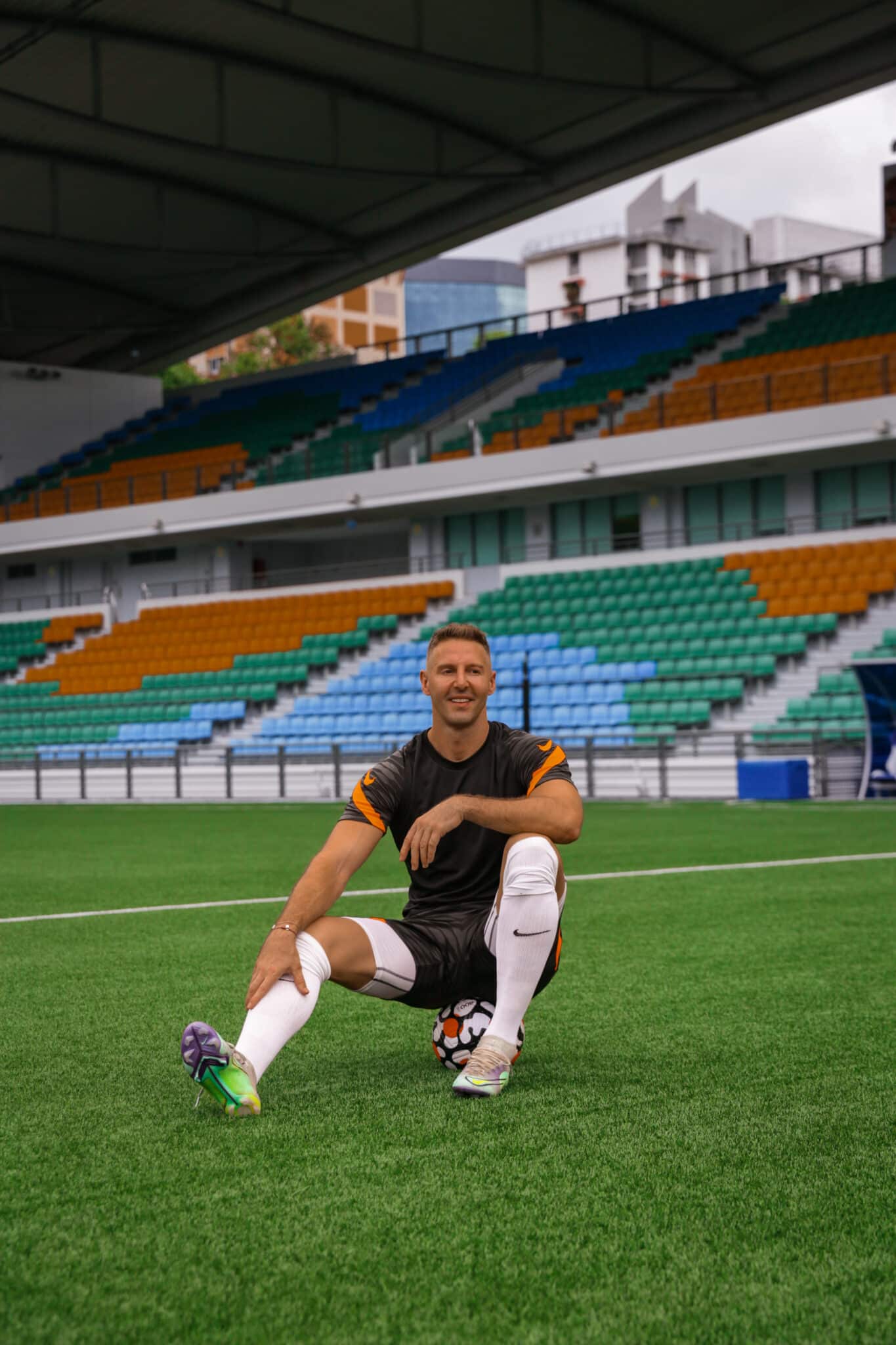
Thomas Beattie on the football pitch. (Provided)
Those discussions also bring the issue of being gay in sport into the spotlight, which is always a good thing. Beattie is conscious that there are undoubtedly many queer footballers out there who are in exactly the place he was in a few years ago. His advice to them is simple – take your time and seek support.
“I will say that, whenever people are ready, there is a whole community of people waiting to welcome them with open arms. When the time is right, there’s a lot of happiness and joy on the other side.”
He continues: “Whether you come out, don’t come out, your worth is the exact same, and your ability to perform your job is not hindered either way. Your identity is a big part of who we are, but it’s one piece of who we are – we’re all many other things.
“This is just one piece that makes the whole pie.”

